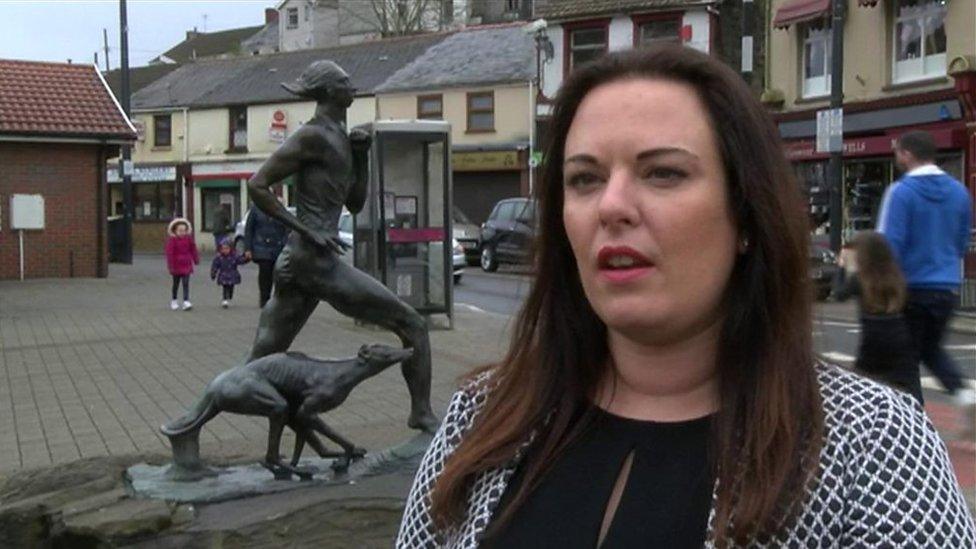Are protesters right on South Africa farm murder rate?
- Published

"Genoeg is genoeg."
Enough is enough. That was the message on Monday, as (mostly white) activists carried crosses and blocked roads to demand better protection for South Africa's farms, after they were targeted in a spate of murders.
The South African Police Service has argued that the majority of attackers are motivated purely by a desire to rob farmers,, external but the country's Institute of Race Relations has warned there may be a racial element to some of the attacks., external
There's a sense in some quarters that white farmers are being targeted in particular.
Many have claimed in recent weeks that South Africa's farmers are more likely to be murdered than the average South African.
Allow X content?
This article contains content provided by X. We ask for your permission before anything is loaded, as they may be using cookies and other technologies. You may want to read X’s cookie policy, external and privacy policy, external before accepting. To view this content choose ‘accept and continue’.
Allow X content?
This article contains content provided by X. We ask for your permission before anything is loaded, as they may be using cookies and other technologies. You may want to read X’s cookie policy, external and privacy policy, external before accepting. To view this content choose ‘accept and continue’.
Neither of the claims above is supported by reliable data. So what does the evidence say?
More farm murders
According to the best available statistics, farm murders are at their highest level since 2010-11.
South Africa's Police Service says 74 people were murdered on farms between April 2016 and March 2017, up from 58 in the previous year.
That's broadly in line with figures collected by the Transvaal Agricultural Union (TAU). They rely on media reports, social media posts and tip-offs from their members, which means they don't pick up every murder or attack that takes place.
They counted 64 murders on farms in 2015, 71 in 2016, and 68 in the first nine months of 2017 alone.
It is worth noting that both the police and the TAU are counting murdered farmers, farm workers and visitors to farms - irrespective of race.
But a rise in the number of farm murders doesn't tell us anything about whether farmers are more at risk than average South African.
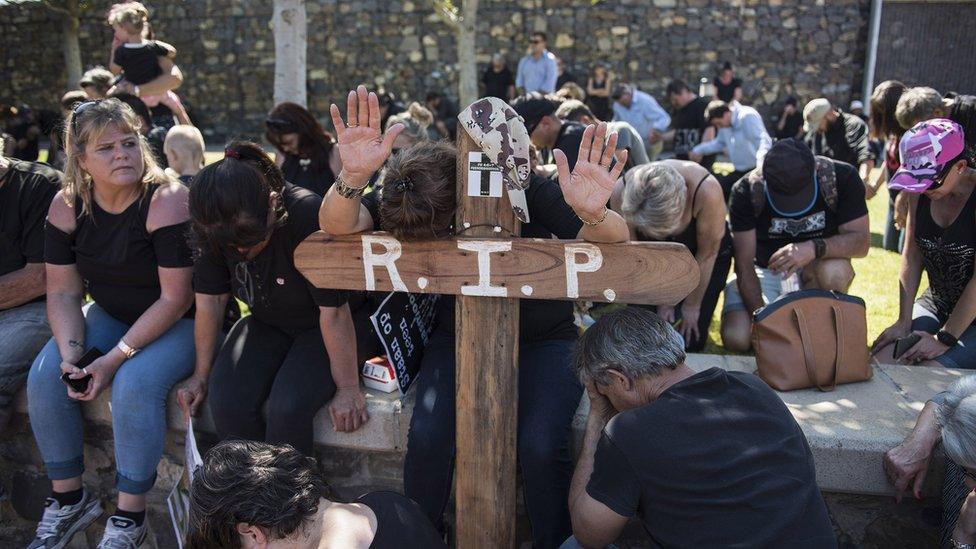
The TAU says most farm murder victims are white. The Police don't record farm murders by race.
To do that, we need to calculate the murder rate - the chance of being murdered.
It's easy enough to tell you what the average is for South Africa.
There were 19,016 murders in South Africa, external in 2016-17, according to the police.
According to Statistics South Africa's mid-year estimate for 2016, there were 55,908,900 people in South Africa., external
That's 34 murders for every 100,000 people.
Are farmers at greater risk than this national average?
How many farmers?
The truth is, we don't know. We can't calculate a meaningful murder rate for farmers, because we don't know how many there are.
Do we include all 810,000 people employed in agriculture? That gives a farm murder rate of 9.1 per 100,000 - much lower than the South African average.
Or, do we restrict ourselves to the 32,375 commercial farmers counted in the country's last agricultural census in 2007?
That's what AfriForum, a group that campaigns for the interests of Afrikaners in South Africa, appears to have done.
It has estimated a farm murder rate of 156 per 100,000 that has been widely quoted in recent days.
Allow X content?
This article contains content provided by X. We ask for your permission before anything is loaded, as they may be using cookies and other technologies. You may want to read X’s cookie policy, external and privacy policy, external before accepting. To view this content choose ‘accept and continue’.
Allow X content?
This article contains content provided by X. We ask for your permission before anything is loaded, as they may be using cookies and other technologies. You may want to read X’s cookie policy, external and privacy policy, external before accepting. To view this content choose ‘accept and continue’.
It appears to be calculated as follows.
First, take the 50 murdered farmers counted by the TAU in 2016 (which excludes murders of family members, employees and visitors).
Then, divide by 32,000 - an estimate of the total number of farmers, based on the 2007 figure.
There are problems with this approach.
First, the data is very old, so the number of farmers may be different now.
Second, to exclude murdered family members, employees, and visitors to the farm from such an analysis misses part of the picture of what is happening on South African farms - but we don't know how many of those people there are.
Third, the 2007 census did not include small, non-commercial farms - but some of the murders counted in the figures did take place on smaller farms. By leaving them out, the murder rate comes out higher than it should.
Can we talk about race?
This also helps explain why it's impossible to say whether white farmers are more at risk than black farmers - or more at risk than the population at large.
We simply don't know what proportion of people on South Africa's farms is white.
The closest we get is the 2016 Community Survey, external of agricultural households. Of the nearly 200,000 households whose agricultural activity takes place on farmland, about 54,000 have a white person at the head of the household.
The problem is, we don't know how many people are in each household or how many of the households are racially mixed.
So we don't know how many white people there are on South Africa's farms. And that means we can't work out how likely those white people are to be murdered.
Guesstimation
We could try and guesstimate, by making various assumptions about how many farmers there are now, how many are white and how many people live on their farms.
South Africa's Institute of Race Relations has attempted to do so here, external.
But as they explain in their analysis, small changes to those assumptions can make huge differences to the estimated murder rate. On some sets of assumptions, the farm murder rate is no higher than the national average.
Fellow fact-checkers Africa Check discuss further pitfalls here., external
In short - we have no clear idea about the murder rate on South African farms.
And because of that, the claim being made by protesters about farmers being more likely to be murdered is not supported by reliable data.



- Published30 October 2017
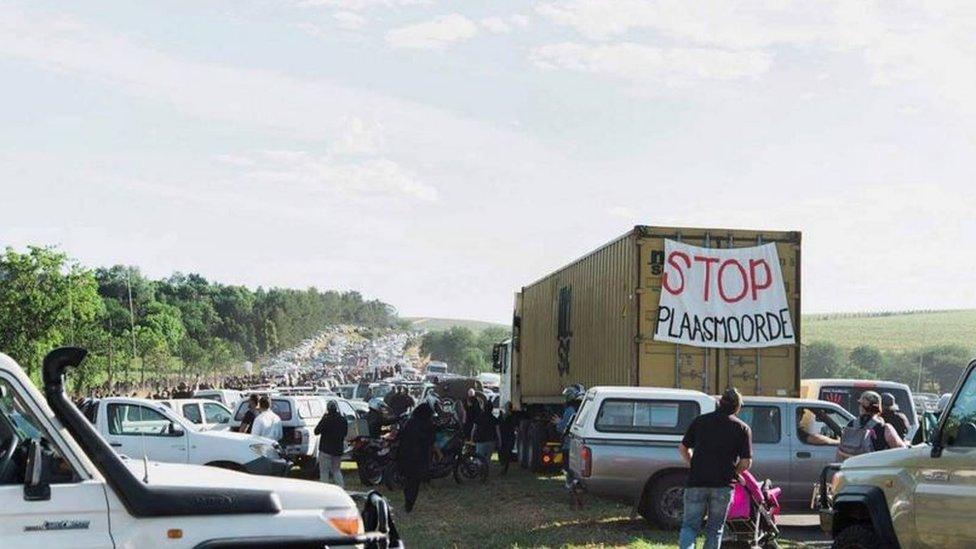
- Published27 October 2017
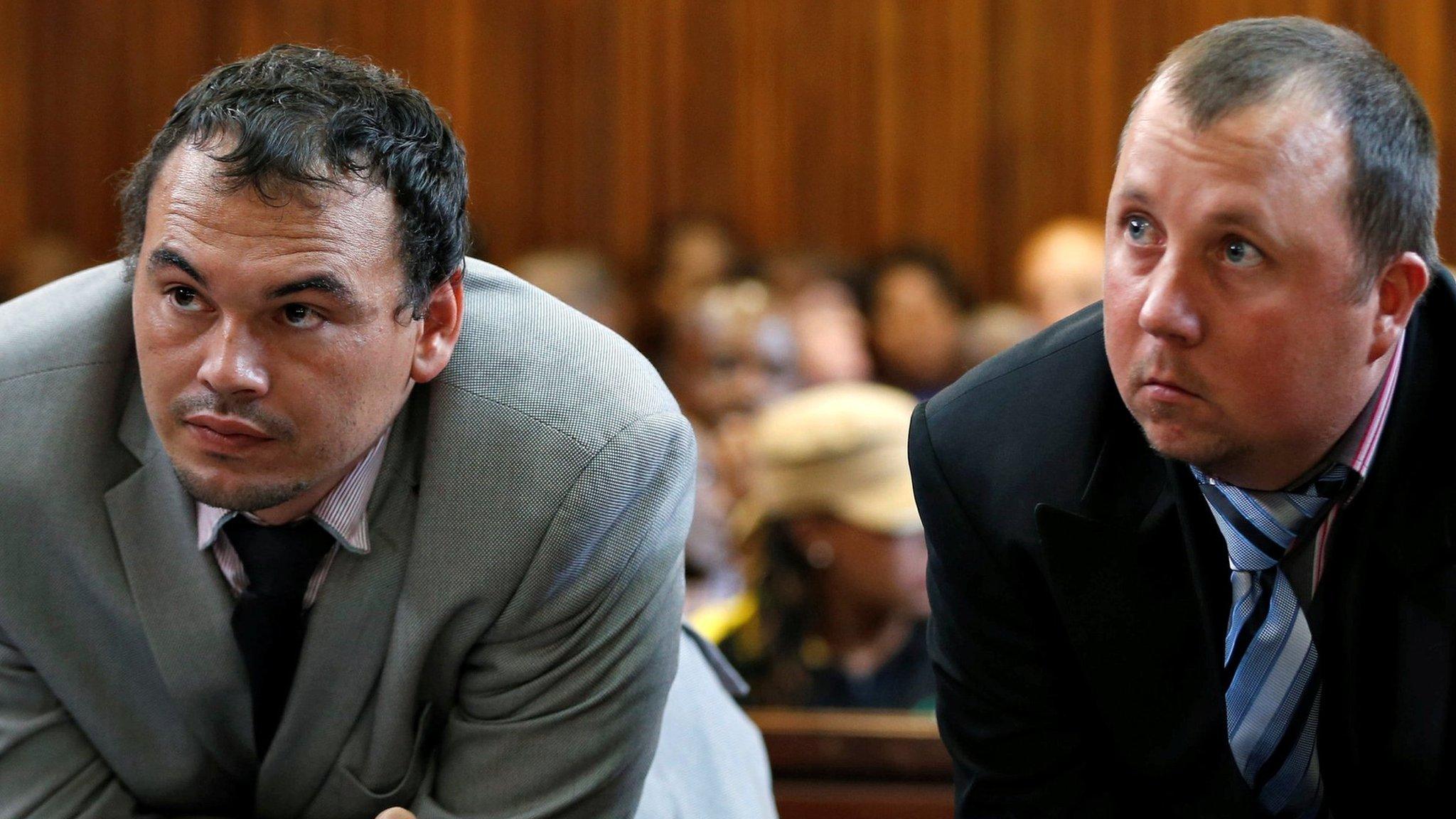
- Published20 October 2017

- Published24 February 2017
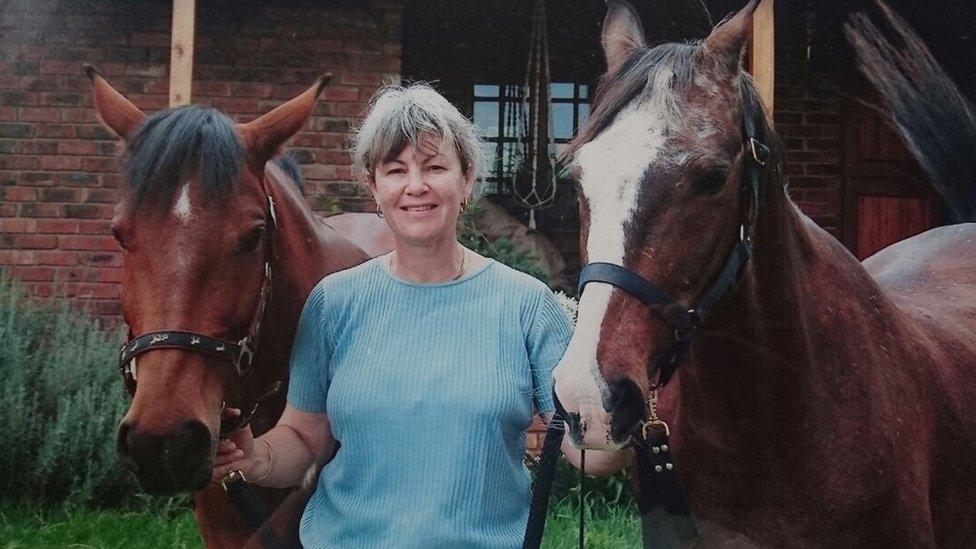
- Published22 February 2017
